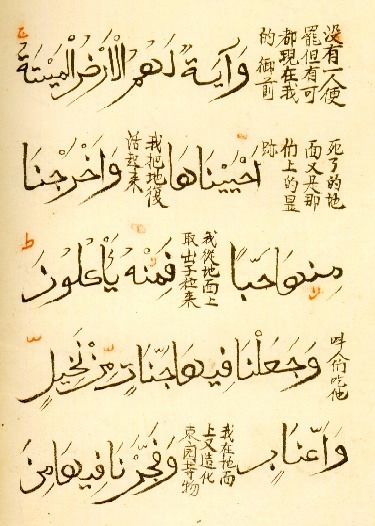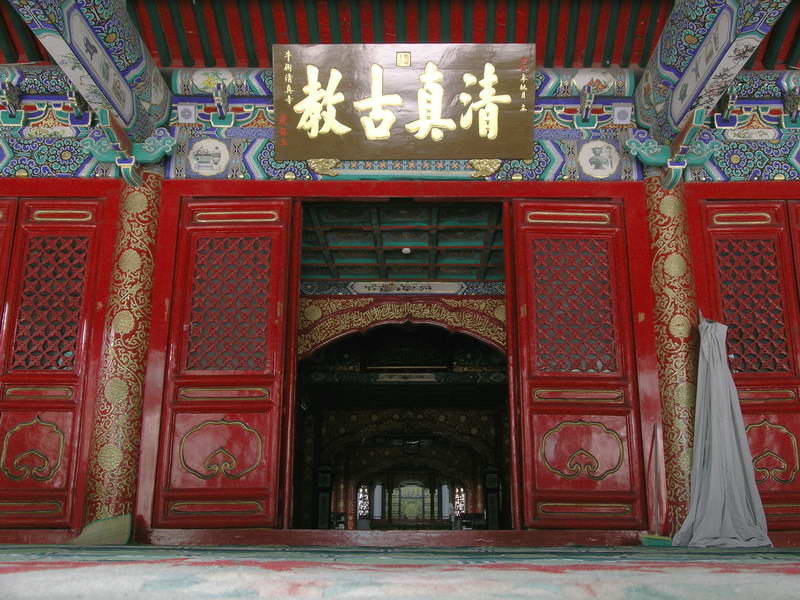China Research Seminar Series talk given by Dr Dror Weil, University of Cambridge
Early modern knowledge exchanges across Asia are a rather under-studied aspect in the history of late imperial China. The historiographical attention to the exclusive role that European missionaries played in introducing “Western ideas” to late Imperial China has to a great extent overshadowed the investigation of cross-Asian engagements and their contribution to the cultural, social and intellectual fabric of late imperial China.
This talk will focus on a network of Chinese savants who sought new knowledge of the natural world through meticulous study of Arabic and Persian texts. Between the mid-16th and early-18th centuries, these savants undertook extensive travels in search of newly-imported or long-forgotten Arabic and Persian manuscripts forgotten in libraries, or newly brought by visitors, and developed didactic methodologies to interpret these texts. Some published their scholarly insights in Chinese, thereby calibrating the accumulated knowledge of Greek, Arab and Persian traditions with contemporary Chinese theories and experiences.
The talk will explore the methods by which Chinese sought to bridge linguistic, cultural and theoretical gaps, and the cultural economy by which foreign concepts and theories were interpreted, articulated and naturalized. It will bring to light a hidden facet of the polyglot and multicultural nature of late Imperial China and the vibrant cultural exchanges across early modern Asia.
Dror Weil is a historian of the pre-modern Asia, with a particular interest in scientific and other textual exchanges between the Islamicate world and China; cultural, intellectual and social histories of Late Imperial China; histories of medicine and science in Asia; and, histories of the book and textuality. He studied for his BA degree in East Asian Studies and Economics at Tel Aviv University, and an MA degree in History at National Chengchi University (政治大學) in Taipei. He earned a PhD degree in 2016 from Princeton University with a dissertation titled: “The Vicissitudes of Late Imperial China's Accommodation of Arabo-Persian Knowledge of the Natural World, 16th-18th Centuries.” He was a recipient of the Thomas Arthur Arnold Fund for Excellence in Historical Research fellowship at the Zvi Yavetz School of Historical Studies, Tel Aviv University in 2017 and held postdoctoral fellowships at the Max Planck Institute for the History of Science in Berlin and the Berlin Center for the History of Knowledge between 2017-2019. Before taking up a university lectureship at Cambridge in 2021, He served as a University Lecturer at the Department of History, King's College London for two academic years between 2019-2021 and he was invited to serve as a Visiting Professor at EHESS (Paris and Marseille) in 2022.
His recent publications include: An edited volume: Dror Weil, Katja Krause and Maria Auxent (eds), Premodern Experience of the Natural World in Translation (London: Routledge, June 2022). Open access; and the following articles: “Islamicated China - China's Participation in the Islamicate Book Culture during the Seventeenth and Eighteenth Centuries,” Intellectual History of the Islamicate World 4, No. 1-2 (Jan. 2016), 36-60; “The Fourteenth-Century Transformation in China's Reception of Arabo-Persian Astronomy,” in Patrick Manning and Abigail Owen (eds.) Knowledge in Translation: Global Patterns of Scientific Exchange, 1000-1800 CE (Pittsburg: Pittsburg University Press, 2018), 345-370; “Chinese-Muslims as Agents of Astral Knowledge in Late Imperial China,” in Bill Mak and Eric Huntington (eds.), Overlapping cosmologies in Asia (Leiden: Brill, 2022); “Unveiling Nature: Liu Zhi’s Translation of Arabo-Persian Physiology in Early Modern China,” Osiris 37/1 (2022), 47-66. More on Dr Weil here: https://www.hist.cam.ac.uk/people/dr-dror-weil
| Contact |
|---|
| Professor Adam Yuet Chau: ayc25@cam.ac.uk |


